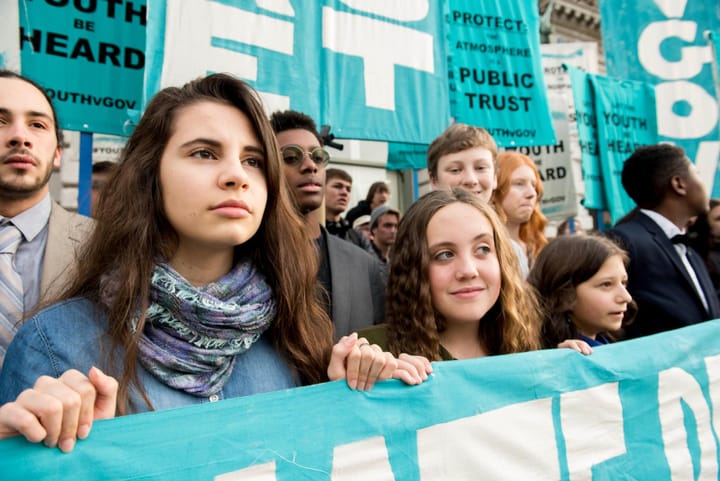Court Set To Hear Arguments In Youth Climate Lawsuit Against Canadian Federal Government

A landmark constitutional climate lawsuit brought by 15 young Canadians against Canada’s federal government will come before a court this week for two days of hearings to determine if the case will advance to trial. Should the case go to trial, it would be one of the first courtroom trials anywhere in the world in litigation brought by youth against their national government over the climate crisis.
The Canadian lawsuit La Rose et al. v. Her Majesty the Queen, filed almost exactly a year ago in October 2019, argues that Canada is contributing to dangerous climate change – such as by permitting fossil fuel projects – despite knowing the risks and that this amounts to violations of young people’s rights under a part of Canada’s constitution called the Canadian Charter of Rights and Freedoms. The youth also say the Canadian government is violating its legal obligations to protect life-sustaining natural resources under a legal doctrine known as the public trust doctrine. The claims are essentially the same as ones brought by 21 American youth against the U.S. federal government in the groundbreaking case Juliana v. United States. The La Rose lawsuit is the Canadian equivalent of the Juliana climate case.
Canada has responded by trying to have the court strike (dismiss) the case. This week’s hearings, on Sept. 30 and Oct. 1 at the federal court in Vancouver, are on the motion to strike. Canada is expected to argue that addressing climate change is a political matter that cannot be resolved by courts. The government also says that the public trust doctrine does not exist in Canadian law.
But for the young people suing their government over the unfolding climate crisis that they say disproportionately harms them, governments have so far failed to fix the problem and court intervention is therefore necessary to prevent further harm.
“We can’t leave this to politics. We’ve tried that for 30 years or more,” youth plaintiff Ira from Caledonia, Nova Scotia said during an online press briefing last week.
“We’ve been forced to turn to the courts,” he added. “The courts are our only viable option right now.”
Fellow youth plaintiff Albert Lalonde from Montreal, Quebec explained that youth climate activists have tried other means like engaging with politicians and protesting to demand climate action.
“We are being deliberately ignored,” Lalonde said. “The bottom line is we have rights and they are being violated.”


